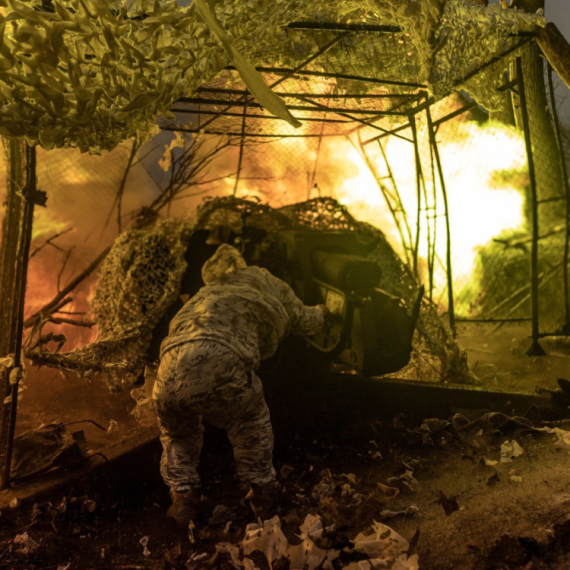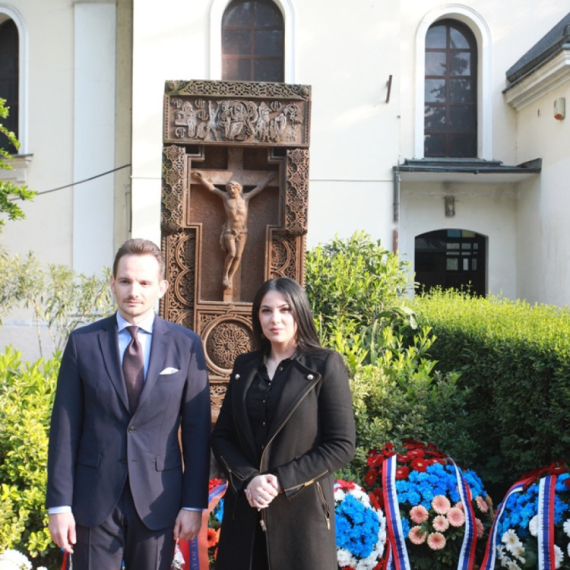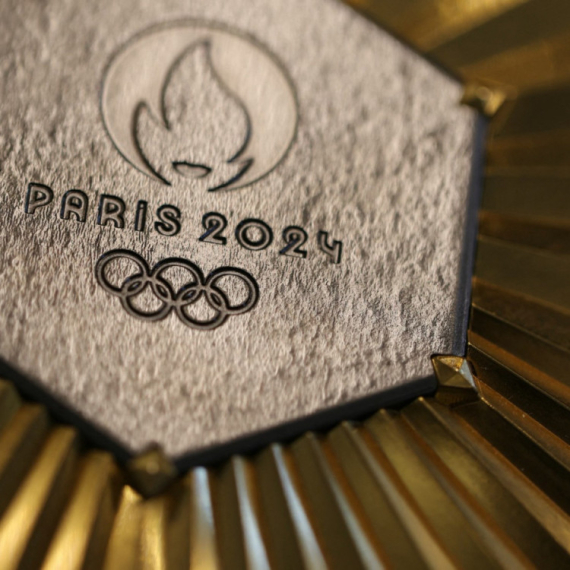New findings: The police silenced doctor who wanted to alert the world to coronavirus
A Chinese doctor who has been silenced for trying to warn the epidemic at the end of December, is suffering from coronavirus disease himself
Tuesday, 04.02.2020.
15:15

New findings: The police silenced doctor who wanted to alert the world to coronavirus
On December 30, Li Wenliang "dropped a bombshell" in his medical school alumni group on the popular Chinese messaging application, informing them that seven patients from a local seafood market had been diagnosed with a SARS-like illness and quarantined in his hospital.Li explained that, according to a test he had seen, the illness was a coronavirus, a large family of viruses that includes severe acute respiratory syndrome (SARS).
Memories of SARS are still fresh in China, where a pandemic in 2003 killed hundreds following a government cover up.
"I only wanted to remind my university classmates to be careful", a 34-year-old doctor Li Wenliang said, working in Wuhan, the central Chinese city at the epicenter of the deadly coronavirus outbreak.
Li told his friends to warn their loved ones privately. But within hours screenshots of his messages had gone viral -- without his name being blurred.
"When I saw them circulating online, I realized that it was out of my control and I would probably be punished," Li said.
He was right.
Soon after he posted the message, Li was accused of "rumor-mongering" by the Wuhan police. He was one of several medics targeted by police for trying to blow the whistle on the deadly virus in the early weeks of the outbreak. The virus has since claimed at least 400 lives and sickened more than tens of thousands of people globally, including doctor Li.
From an intensive care bed in hospital, Li told CNN he was confirmed Saturday to have contracted the virus. His diagnosis has sparked outrage across China, where a backlash is growing against state censorship around the illness and an initial delay in warning the public about the deadly virus.
On the same day in December that Li messaged his friends, an emergency notice was issued by the Wuhan Municipal Health Commission, informing the city's medical institutions that a series of patients from the Huanan Seafood Wholesale Market had the symptoms of an "unknown pneumonia". The notice contained a warning that no organization or individual is not allowed to release treatment information to the public without authorization.
On December 31, Wuhan's health authorities held an emergency meeting to discuss the outbreak. Afterwards, Li was summoned by officials at his hospital to explain how he knew about the cases, according to state-run newspaper Beijing Youth Daily.
Later that day, the Wuhan authorities announced the outbreak and alerted the World Health Organization. But Li's troubles did not end there.
On January 3, Li was called to a local police station and reprimanded for "spreading rumors online" and "severely disrupting social order" over the message he sent in the chat group. Li had to sign a statement, acknowledging his "misdemeanor" and promising not to commit further "unlawful acts". He was released afterwards.
He returned to work shortly, only to be hospitalized on January 12. In the following days, Li's condition deteriorated so badly that he was admitted to the intensive care unit, and given oxygen support.
On February 1, he tested positive for coronavirus.
From an intensive care ward, Dr Li told CNN in a text message that he was coughing too much and breathing too poorly to speak over the phone.
From the start, the Chinese authorities wanted to control information about the outbreak, silencing any voices regardless of whether they were telling the truth, CNN reports.
On January 1, the Wuhan police announced it had "taken legal measures" against eight people who had recently "published and shared rumors online" about the pneumonia-like illness and "caused adverse impacts on society, adding that all those will be punished by police according to the law, "with zero tolerance".
The police announcement was broadcast across the country on CCTV, China's state broadcaster, making it clear how the Chinese government would treat such "rumormongers."
In the two weeks that followed, the Wuhan Municipal Health Commission remained the only source for updates on the developments of the outbreak. Chinese scientists identified the pathogen as a new coronavirus on January 7. For about a week, no new confirmed cases were announced. Health authorities maintained there was "no obvious evidence for human to human transmission," no infection of healthcare workers, and that the outbreak was "preventable and controllable."
Li told CNN that he was wondering why Chinese official notices were still saying there was no human-to-human transmission, and there were no healthcare workers infected. Then came a sudden jump in infections, while on January 20, President Xi Jinping ordered "resolute efforts to curb the spread" of the coronavirus and stressed the need for the timely release of information.
Later that evening, Zhong Nanshan, a government-appointed respiratory expert, known for fighting SARS 17 years ago, declared on state broadcaster CCTV that the new coronavirus was transmissible from person to person.
Three days later, authorities placed an unprecedented lockdown on Wuhan, the economic engine and transportation hub of China's central heartland -- but five million people had already left the city for the Lunar New Year holiday.
Now, the virus has spread to every region in the country where those people traveled to.
In an interview with CCTV on January 27, Wuhan mayor Zhou Xianwang admitted his government did not disclose information on the coronavirus "in a timely fashion." He explained that under Chinese law on infectious diseases, the local government first needs to report the outbreak to national health authorities, and then get approval from the State Council before making an announcement.
By late January, the Wuhan government's mishandling of the outbreak was becoming known, while many said that early warnings could have saved hundreds of lives.
Public praise has multiplied - even in the state media, commending Dr Li and seven other doctors who first published it online. Xi's call for the timely release of information was seen as a green light to report on the coronavirus and Chinese journalists began producing in-depth coverage and hard-hitting investigative reports.
The state-run newspaper "Beijing Youth Daily" even interviewed Li and the article went viral only to be censored within hours. As public anger mounted, China's Supreme Court on January 28 criticized the Wuhan police for punishing Dr Li as the "rumormonger".
"It might have been a fortunate thing for containing the new coronavirus, if the public had listened to this 'rumor' at the time, and adopted measures such as wearing masks, strict disinfection and avoiding going to the wildlife market," the Supreme Court commentary said.
Under strong pressure, the Wuhan police issued a statement the next day, saying the eight people had only committed "particularly minor" misdemeanors for spreading "unverified information." It said they had only been summoned for a talk and not detained or fined.
On Saturday, another "rumormonger" came forward with her story in the Chinese press. Xie Linka, an oncologist at Wuhan Union Hospital, told Chinese media she received a warning from police after sending an alert to her colleagues on the evening of December 30 about her hospital receiving multiple patients from the seafood market.
Dr Li Wenliang, who is now getting treatment in the intensive care ward, felt relieved after reading the Supreme Court commentary, taking it as a sign that the central government is against giving him a harsh punishment, CNN reported.
















Komentari 5
Pogledaj komentare